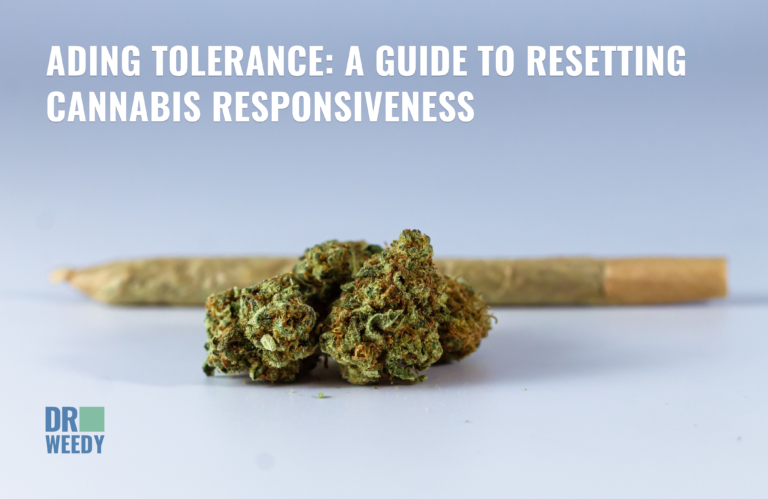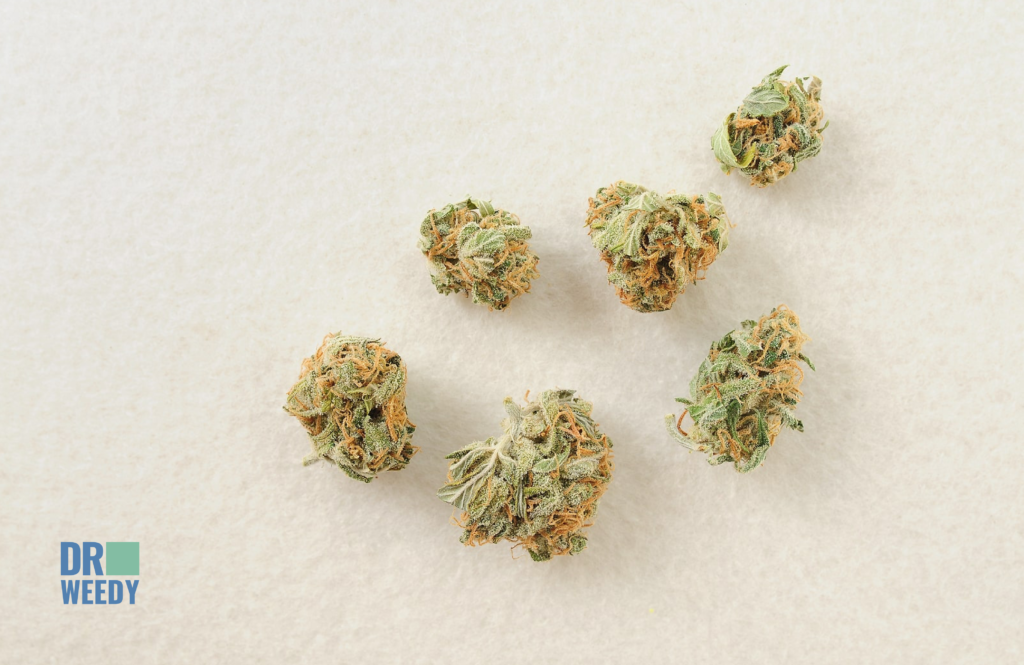Fading Tolerance: A Guide to Resetting Cannabis Responsiveness

As legalization expands and societal views toward cannabis shift, recreational use has become commonplace for millions of adults across North America. Regular consumers often report developing a tolerance over time – requiring greater quantities to achieve former effects. While frustrating, research shows taking strategic breaks can help lower tolerance and restore sensitivity if planned methodically.
Why Tolerance Develops

Before diving into resetting tolerance, it’s helpful to understand the science behind why it develops with consistent cannabis use.
Tetrahydrocannabinol (THC) is the key psychoactive compound in cannabis responsible for generating the quintessential high. It causes this intoxicating effect by binding to cannabinoid type 1 (CB1) receptors in the brain (1).
Frequent cannabis use triggers your CB1 receptors to downregulate as the body tries maintaining equilibrium (2). This means you’re left with fewer receptors for THC to bind to, necessitating higher consumption to achieve previous effects.
Additionally, regular exposure prompts the body to process and eliminate THC more quickly over time. Together, receptor changes and faster metabolization of THC lead to lessened impacts at a given dose.
Effective Tolerance Break Strategies
Abstaining from cannabis use for an extended period remains the only surefire way to lower tolerance significantly (3). Most recommendations suggest taking a month or more off entirely reset receptors and THC processing. However, even shorter one to two-week breaks can make a noticeable impact.

During tolerance breaks:
- Stop all cannabis use, including CBD products which can also influence tolerance levels.
- Avoid exposure to second-hand smoke which could inadvertently stimulate receptors.
- Consider temporarily discontinuing other substances like alcohol that enhance THC effects.
Curbing Withdrawal
Transitioning to abstinence often elicits minor withdrawal symptoms, including irritability, sleep disruptions, appetite shifts, plus cravings. While relatively mild for most, these effects feel amplified against the backdrop of life’s normal stressors.

To ease withdrawal symptoms, promote healthy lifestyle practices:
- Get regular exercise to boost mood through endorphins;
- Focus on quality sleep hygiene to avoid insomnia issues;
- Stay hydrated and eat nutritious meals to optimize health.
Strategies Like Timing and Microdosing

While abstinence is required, some users employ strategies around their break timing and return to use aimed at lowering initial tolerance regain risk:
Optimized Timing
- Take breaks after periods of heavy use when tolerance plateaus
- Avoid returning initially with high doses so receptors don’t rebound
Planned Microdosing
- Start back slowly using micro doses below full intoxication
- Gradually increase doses over a few weeks of use
However, research on these strategies remains limited. Success likely depends heavily on the length of the break and degree of abstinence maintained. Their impact may be marginal without sufficiently resetting the body’s cannabis processing first.
Debunking Myths and Misconceptions about Marijuana Tolerance

With cannabis use growing in popularity, myths around resetting tolerance abound. But many lack scientific support:
Switching Methods
Alternating smoking, vaping, edibles or other modes is unlikely to influence tolerance pathways long-term.
Changing Strains
While different strains have diverse compositions, they still contain THC and won’t counter tolerance on their own.
CBD-Only Periods
Despite distinct effects, CBD may also stimulate receptors so likely doesn’t substantially impact breaks.
Detox/Cleanse Products
No compelling evidence shows detox aids or cleanses accelerate tolerance fading.
While current science can’t confirm these approaches, individuals’ experiences vary widely. Tracking personal use with tolerance breaks is often the best gauge of what works.
Avoid Permanent Tolerance
Cannabis tolerance tends to rise with increased use frequency over time versus overall duration of use history. Taking periodic short term breaks helps prevent continually ramping up tolerance levels. Moderation is key to avoiding permanent tolerance that necessitates prolonged abstinence for reversal.
Resetting tolerance through cannabis breaks takes patience but pays dividends long-term. Optimizing your return while avoiding overdoing initial consumption can help sustain more consistent effects. And mixing in ratio balancing, microdosing and liver support may offer some potential benefits.
Sources:
- Ng T, Gupta V, Keshock MC. Tetrahydrocannabinol (THC) [Updated 2023 Nov 12]. In: StatPearls [Internet]. Treasure Island (FL): StatPearls Publishing; 2023 Jan-. Available from: https://www.ncbi.nlm.nih.gov/books/NBK563174/
- Hirvonen, J., Goodwin, R. S., Li, C. T., Terry, G. E., Zoghbi, S. S., Morse, C., Pike, V. W., Volkow, N. D., Huestis, M. A., & Innis, R. B. (2012). Reversible and regionally selective downregulation of brain cannabinoid CB1 receptors in chronic daily cannabis smokers. Molecular psychiatry, 17(6), 642–649. https://doi.org/10.1038/mp.2011.82
- Fischer, B., Russell, C., Sabioni, P., van den Brink, W., Le Foll, B., Hall, W., Rehm, J., & Room, R. (2017). Lower-Risk Cannabis Use Guidelines: A Comprehensive Update of Evidence and Recommendations. American journal of public health, 107(8), e1–e12. https://doi.org/10.2105/AJPH.2017.303818


























